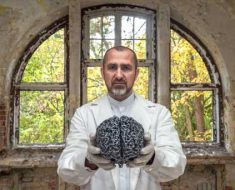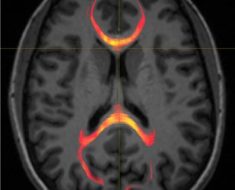
Preliminary findings from two analyses of an ongoing study suggest that cognitive behavioral therapy for insomnia delivered by telemedicine is as effective as face-to-face delivery.
Results of a randomized controlled non-inferiority trial show that both delivery methods were equally effective at improving sleep outcomes measured by sleep diaries, reducing self-reported sleep latency and wake after sleep onset while increasing total sleep time and sleep efficiency. There also were no differences between the two delivery methods in patient perception of therapeutic alliance, warmth, and confidence in the therapist’s skills.
“The most surprising findings in the study were that, contrary to our hypotheses, participants who received CBT for insomnia via telemedicine rated therapist alliance similarly to participants who received face-to-face CBT for insomnia,” said principal investigator J. Todd Arnedt, Ph.D., an associate professor of psychiatry and neurology and co-director of the Sleep and Circadian Research Laboratory at Michigan Medicine, University of Michigan in Ann Arbor. “In addition, ratings of satisfaction with treatment were equivalent between face-to-face and telemedicine participants. Relative to other remote modalities, telemedicine may offer a unique blend of convenience for the patient while preserving fidelity of the face-to-face interaction.”
Insomnia involves difficulty falling asleep or staying asleep, or regularly waking up earlier than desired, despite allowing enough time in bed for sleep. Daytime symptoms associated with insomnia include fatigue or sleepiness; feeling dissatisfied with sleep; having trouble concentrating; feeling depressed, anxious or irritable; and having low motivation or energy.
The most effective treatment for chronic insomnia is cognitive behavioral therapy for insomnia (CBT-I). It combines behavioral strategies, such as setting a consistent sleep schedule and getting out of bed when struggling with sleep, with cognitive strategies, such as replacing fears about sleeplessness with more helpful expectations. CBT-I recommendations are customized to address each patient’s individual needs and symptoms.
The analysis comparing sleep and daytime functioning variables included 47 adults with chronic insomnia, including 33 women. The analysis of therapeutic alliance involved 38 adults with insomnia, including 25 women. Participants had a mean age of about 52 years. They were randomized to six sessions of CBT-I delivered face-to-face or via the AASM SleepTM telemedicine system. One therapist delivered CBT-I in both conditions.
“Preliminary findings from this study suggest that patients undergoing telemedicine for insomnia can feel just as close and supported by their therapist as if they were in the office,” said co-investigator Deirdre Conroy, Ph.D., a clinical associate professor of psychiatry and clinical director of the Behavioral Sleep Medicine Program at Michigan Medicine, University of Michigan in Ann Arbor. “Telemedicine could be utilized more for CBT-I to bridge the gap between supply and demand for this service.”
Source: Read Full Article





